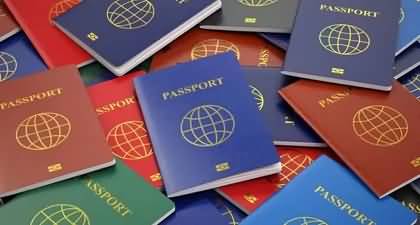
ISLAMABAD: PayPal will not be coming to Pakistan despite the government’s efforts to convince the American company, which operates a worldwide online payment system that supports online money transfers, to introduce its services in the country, a Senate committee was told on Thursday.
“PayPal did not decline because it has issues operating in Pakistan. Their internal working is such that they are not ready to introduce services in Pakistan,” Ministry of Information Technology Secretary Maroof Afzal told the Senate Standing Committee on IT.
The committee met for a briefing on the IT ministry’s Universal Service Fund (USF), which is supposed to be used to introduce telecommunications and broadband services to un-served and underserved areas in the country.
Although this matter was not on the meeting’s agenda, committee members have been pushing the ministry to ask PayPal to introduce services in the country.
While Mr Afzal tried to explain why PayPal was not interested in coming to Pakistan, Senator Mian Mohammad Ateeq Shaikh said PayPal is afraid to come to Pakistan unless there are laws to protect the company’s interests.
Senator Rehman Malik added: “One case of money laundering could cause significant problems for PayPal. PayPal must have the backing of the government that it can secure the interests of the company.”
In response to a question after the meeting about the new telecom licence renewal policy, under which the government is asking Jazz and Telenor for $450 million instead of the previous $291m, IT Minister Khalid Maqbool Siddiqui said the new policy has to be implemented under the new conditions.
“Since the mobile operators have approached the court on the matter of the licence renewal fee, [it] will be settled through the court. We are looking into it and the problem should be solved soon,” he said.
Jazz went to the Islamabad High Court earlier this month seeking to have the licence renewed according to the original terms and the 2015 Telecom Policy. The licence was issued for Rs16.8 billion (then equivalent to $291m) in 2004 and is now worth Rs41.4bn ($291m today).
Two other mobile operators, Telenor and Warid – which Jazz later acquired – were issued licences through an auction in 2004, and both need to be renewed after 15 years.
Both companies argue that the telecom operators are entitled to renew the licence at the same dollar price at which it was acquired, saying that it should be done “in an equitable, fair and transparent way”.
The committee also took up mobile registration systems, with members arguing that these were inconveniencing users after the two-month grace period to register new handsets expired.
Senator Shaikh raised the issue, saying that blocked handsets are being unblocked on the black market for Rs2,000 to Rs3,000, for mobile phones that would have fetched the exchequer more than Rs30,000.
He also showed committee members and IT ministry officials a receipt to show that someone had gotten their phone unblocked on the black market.
Committee members said the government should do away with taxes on handsets Pakistanis bring from abroad.
“Travellers from abroad should be allowed to bring more than one handset as a gift,” committee chair Senator Robina Khalid said.
The Pakistan Telecommunication Authority introduced a Device Identification Registration and Blocking System to curtail the sale and use of counterfeit or substandard mobile phones.
Since its inception a year ago, the programme has garnered criticism and raised questions about its effectiveness and the inconvenience it will cause ordinary users.
Published in Dawn, May 17th, 2019
Source
Top Rated Posts ....
 Imran Khan had become very superstitious - Naeem Bukhari
Imran Khan had become very superstitious - Naeem Bukhari
 Video: Clash between female passengers and customs officials at Lahore Airport
Video: Clash between female passengers and customs officials at Lahore Airport
 Imran Khan is a proven thief - Clash b/w Humayun Mohmand and Hassan Ayub
Imran Khan is a proven thief - Clash b/w Humayun Mohmand and Hassan Ayub
 Who is Gharida Farooqui representing? Shaukat Yousufzai taunts Gharida Farooqui
Who is Gharida Farooqui representing? Shaukat Yousufzai taunts Gharida Farooqui
 Breaking News: Pakistan's stock market crashed after Donald Trump's tariff announcement
Breaking News: Pakistan's stock market crashed after Donald Trump's tariff announcement
 This woman in Lahore was told she can’t do yoga in park despite no such rule
This woman in Lahore was told she can’t do yoga in park despite no such rule
Follow Us on Social Media
Advertisement
Popular Posts
Minahil Malik's video message after her private videos leaked on social media
Views 5000 | April 03, 2025Imran Khan had become very superstitious - Naeem Bukhari
Views 2666 | April 07, 2025Ali Amin Gandapur rebuts PTI's claim of straight firing by army on November 26
Views 1764 | April 03, 2025Karachi: Case registered against police officer under PECA for maligning President Asif Zardari
Views 1583 | April 04, 2025CM KPK Ali Amin Gandapur admits that he plays on both sides of the wicket
Views 1364 | April 03, 2025Late Dr. Aamir Liaquat’s first wife Syeda Bushra lashes out at Aamir Liaquat’s second wife Tuba Anwar
Views 1055 | April 06, 2025Discover the world's most powerful passport, which country is on the top?
Views 1014 | April 04, 2025Khushdil Shah confronts with two Afghan spectators after match against New Zealand
Views 1004 | April 05, 2025India: Employee turned into a 'dog' for not meeting company targets
Views 945 | April 06, 2025Promo of Molvi Ibtisam Ilahi Zaheer's exclusive interview with Irshad Bhatti
Views 851 | April 05, 2025Comments...













